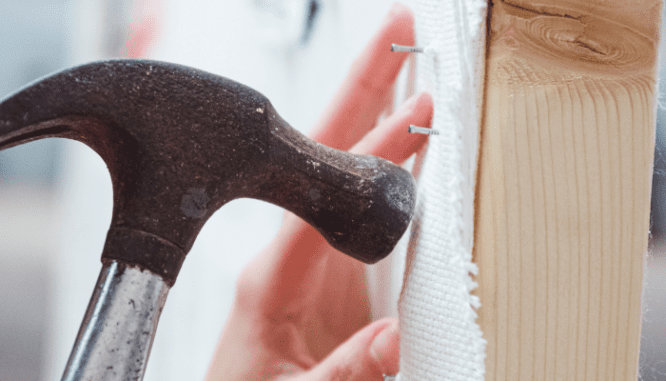We Answered Your Top 12 Questions About First Time Home Buyer Loans (In Exquisite Detail)
- Published on
- 16 min read
-
 Summer Rylander, Contributing AuthorClose
Summer Rylander, Contributing AuthorClose Summer Rylander Contributing Author
Summer Rylander Contributing AuthorSummer Rylander is a freelance writer and editor with an abundant background in real estate. A former residential real estate agent in the Columbia, SC area and sales administrator at a commercial real estate firm, she now uses this experience to help guide readers. Summer currently resides in Nuremberg, Germany, where she fulfills her passions of food and travel and avoids her dislikes of mayonnaise and being trapped in an office.
-
 Amber Taufen, Former Managing Editor, Buyer Resource CenterClose
Amber Taufen, Former Managing Editor, Buyer Resource CenterClose Amber Taufen Former Managing Editor, Buyer Resource Center
Amber Taufen Former Managing Editor, Buyer Resource CenterAmber was one of HomeLight’s Buyer Center editors and has been a real estate content expert since 2014. The former editor-in-chief at Inman, she was named a “Trendsetter” in the 2017 Swanepoel Power 200 list, which acknowledges “innovators, dealmakers, and movers-and-shakers who made a noteworthy impact over the last year” in real estate, and her assessment of revenue and expenses at the National Association of Realtors won a NAREE Gold Award for “Best Economic Analysis” in 2017.
There’s a lot to consider when buying a home. Determining where you should buy and what house you can afford are important early steps, but it’s all hypothetical until you sit down with a lender and start talking real numbers.
Unless you’re paying cash for your new home, you’ll need a mortgage loan. And if you’re a first-time buyer, you’ll probably have more than a few questions about types of loans, how much down payment you’ll need, and how to qualify for the right loan for you.
We’re breaking down some of the most common questions about first-time home buyer loans with expert help from Richie Helali, a HomeLight Home Loans mortgage specialist. We’ve also asked top Chicago-based real estate agent Debra Dobbs for her insight — and with 37 years in the business, she’s certainly worked with a first-time buyer or two.
So, let’s get right into the questions (and answers!).

Who is considered a first-time buyer?
Contrary to popular belief, first-time home buyers aren’t necessarily people who have never bought a home before.
“For the purpose of home loans, a first-time homebuyer is defined as somebody who has not had an ownership interest in a property in the previous three years,” Helali explains.
This means that your name can not have been listed on the deed of any house or piece of land for the past three years — whether you’ve lived there or not. This includes rental or investment properties, co-ownership of a relative’s home, or an empty lot you bought for cheap but haven’t built on yet.
As long as you haven’t had a stake in real estate for 36 months, you’ll probably be considered a first-time home buyer for loan purposes— we’re not writing anything in stone here, as loan terms can and do vary and are always subject to change.
Are there loans for first-time homebuyers?
In truth, most home loans are open to anyone who qualifies.
“Generally speaking, there isn’t a type of loan that specifies, ‘Hey, this is only for first-time buyers,’” says Helali.
Instead, some loans simply offer more flexibility than others, and there are first-time homebuyer programs that you may be eligible for. These programs can help with factors like your down payment, added flexibility if your credit history is less than stellar, repair funding for qualified homes, and so on.
Many of these loans and programs are government-backed, some are conventional (private), and some programs are hyper-local, while others are offered nationwide. Each type of loan or program will have its own qualification criteria, but your income, down payment, and credit history will always be considered.

What are government-backed loans?
Government-backed mortgage loans are just that — loans wherein the government will compensate the lender for lost funds if the borrower fails to repay the loan. Because lenders carry less risk, these types of loans are a popular offer for first-time buyers who may not have a large down payment or a strong enough credit score to qualify for a conventional loan.
FHA loans
The Federal Housing Administration (FHA) is a component of the United States Department of Housing and Urban Development (HUD), and FHA loans can offer big advantages for first-time buyers. Namely, down payment amounts as low as 3.5% plus more accommodating credit qualifications.
Your lender can go over the specifics with you, but baseline FHA qualifications include:
- A minimum credit score of 580 to qualify for a 3.5% down payment (expect to put down 10% if your score is below this number)
- A debt-to-income ratio under 43%
- Reliable income with proof of employment
Additionally, a home purchased with an FHA loan can only be used as your primary residence — this isn’t the loan type to use when purchasing your first investment property.
You’ll also need to pay for mortgage insurance (MI) when using an FHA loan, which further protects the lender if you stop making payments on the loan. The cost of FHA mortgage insurance usually runs between 0.45% and 1.05% of your home’s value annually (plus an upfront premium of 1.75%) — so factor that into the calculation of your monthly mortgage payment.
USDA loans
The United States Department of Agriculture is another source of government-backed loans that may be suitable for you as a first-time homebuyer — particularly if you live (or are interested in living) in a rural area.
Qualifying for a USDA loan requires that the property be in an approved rural area and that — as with an FHA loan — it will be used as your primary residence.
You’ll need a credit score of 640 or higher. You will also need reliable income — but not too much. Your adjusted household income can’t exceed 115% of the area’s median income for a USDA home loan.
For reference, the USDA loan income limit for 2021 (for a household of up to four people) is $91,900.
VA loans
A great resource for qualifying current and former service members, the Veterans Benefits Administration offers home loans with very favorable terms.
Even as a first-time homebuyer, taking a VA mortgage loan can mean getting into a home with no down payment, no mortgage insurance, and low interest rates.
You will need to provide your chosen lender with a Certificate of Eligibility (COE) from the VA as eligibility is tied to duty status, length of service, credit history, and income.
VA Native American Direct Loan
Qualifying U.S. veterans looking to purchase or build a home on Federal Trust land may be eligible for a VA Native American Direct Loan (NADL).
As with standard VA loans, you’ll need a Certificate of Eligibility and a satisfactory credit history. With an NADL loan, you’ll also need to be a member of a tribal organization that participates in the VA direct loan program, and the home you’re interested in buying on Federal Trust land will need to be your primary residence.
What are conventional loans?
The main difference between FHA loans and conventional loans is that conventional loans are not backed by the government.
Conventional loans fall into two categories: conforming loans and non-conforming loans.
A conforming loan — despite not being backed by the government — must conform to standards set forth by Fannie Mae and Freddie Mac, government-sponsored enterprises that insure and purchase home loans.
So, what is a conforming conventional loan?
Fannie Mae and Freddie Mac have outlined specific requirements that must be met by all buyers — first-time or otherwise — to qualify for a conforming loan.
The conforming loan limit is set by the Federal Housing Finance Agency (FHFA) and is subject to change each year, and for 2021 the limit has been $548,250. This number is increasing to $647,200 for 2022 and is determined by the average U.S. home value.
On an individual level, to qualify for a conforming loan:
- You’ll need a credit score of at least 620
- Your debt-to-income ratio cannot exceed 50%
- Plan on a down payment of at least 3%
The thing with a conforming loan, though, is that lenders can have their own requirements in addition to what Fannie and Freddie have set forth.
These additional requirements can look like anything from a higher minimum credit score to a larger down payment.
Remember that a good lender will review your entire financial scope and make recommendations for loan types that are appropriate to your needs — and you’re never obligated to work with the first lender to whom you speak, so don’t be afraid to take the time to find someone who makes you feel comfortable with asking questions!
What’s a non-conforming conventional loan?
A non-conforming loan is one that falls outside the bounds of conforming loan guidelines. Usually, this is because the home price exceeds the conforming loan limit and you’re now in “jumbo loan” territory.

What is a jumbo loan?
Jumbo loans are, essentially, mortgages that exceed the conforming loan limit. They often have stricter qualifications since they’re riskier for lenders than conforming loans.
Lenders typically like to see a credit score above 700 and a down payment closer to 10% to 20% — along with reliable proof of qualifying income.
Jumbo loans aren’t especially common among first-time homebuyers, but since first-time buyers can be folks who have previously owned property (as mentioned earlier) — and because different areas of the country have vastly different real estate markets — the concept is not unheard of.
Can a first-time buyer purchase a foreclosed home?
As a buyer, a foreclosed property can be an opportunity to save money, or perhaps afford “more” house than would otherwise be feasible with your current budget.
Foreclosed homes aren’t without risk, however. The process can be a lengthy, stressful one, and homes are generally sold as-is — meaning that while you can (and should!) still have an inspection conducted if possible, you probably won’t be able to negotiate for repairs or monetary allowances.
Nonetheless, there are several helpful programs for first-time home buyers who are interested in purchasing a foreclosure property.
Good Neighbor Next Door loans
Good Neighbor Next Door is a HUD-backed loan program designed to help public servants purchase qualified homes through a 50% discount.
This “discount” is actually a silent second mortgage to which eligible recipients will sign their name, but no interest or payments are due as long as the buyer stays in the home for the required minimum period of three years.
Qualified HUD homes are located in certain areas targeted for revitalization, and the idea is that people who already serve the public — think K-12 teachers and first responders — can enjoy a discounted home price in exchange for their help in stabilizing an area that may be underutilized.
Requirements include providing stringent evidence that you are employed in an approved line of work. You’ll want to chat with your lender about this one!
Fannie Mae HomeReady
HomeReady mortgages are available on Fannie Mae HomePath homes, which are properties that have been foreclosed on and are now owned by Fannie Mae.
A HomeReady loan is a great option for first-time homebuyers because you can have a down payment as low as 3%, you’re allowed to have a cosigner if you wouldn’t otherwise qualify for the mortgage on your own, and they accept additional income sources — potentially very helpful in our current gig economy!
Qualifying for a HomeReady mortgage involves an education requirement to help encourage responsible homeownership. You’ll need to work through an online course that takes about five hours to complete.
Freddie Mac HomePossible
The Freddie Mac HomePossible program is very similar to HomeReady — you’ll be purchasing a foreclosure home owned by Freddie Mac.
Your income can’t exceed 80% of the median income in the area, but this mortgage program is otherwise flexible in terms of allowing cosigners, additional income sources, and a down payment as low as 3%.
HUD Dollar Homes
The Dollar Homes program can actually get you into a home for just $1. It sounds too good to be true — and only certain properties qualify — but it’s a real possibility.
In short, HUD aims to help local governments house low- and moderate-income families by selling homes for just one dollar. Qualified homes have been foreclosed upon and are owned by HUD, they’ve been on the market without selling for a minimum of six months, and they have a market value of $25,000 or less.
The low property value is a tricky caveat and means that repairs are likely, but the Dollar Homes program can serve as a win-win for buyers and the local community alike — families gain housing, and vacant homes are revitalized.

Are there renovation loans for first-time home buyers?
Renovation loans can be a great option for buyers who are looking at a home that will need significant repairs or updates. These loans combine funding to buy the property and cover (at least a portion of) the cost of repairs.
FHA 203(k) loans
The FHA 203(k) Rehab Mortgage is great for both first-time and experienced buyers who are interested in a qualifying home. Namely, the house must be in need of at least $5,000 worth of repairs, be at least one year old, and the property value needs to fall within FHA loan limits.
You’ll need to work with an FHA-approved lender — if you’re already talking to a lender and aren’t sure, don’t hesitate to ask if they’re on the list — and meet FHA loan requirements as outlined above. Otherwise, the 203(k) loan is quite flexible.
Energy Efficient Mortgages
An Energy Efficient Mortgage (EEM) encourages the purchase (or refinancing) of energy efficient homes. With an EEM, estimated monthly energy savings can help get you more favorable lending terms, such as qualifying for a larger mortgage.
To make sure a particular home qualifies for an EEM, a professional home energy rater will typically need to conduct an assessment to determine eligibility. If a house isn’t quite there yet in terms of efficiency but will be after energy improvements are made, this can also help a property qualify.
Because EEMs can be backed by federally insured mortgage programs (like FHA and VA loans) and by conventional loan providers, EEMs are quite versatile, and your lender should definitely be able to help you explore your options.
Freddie Mac ChoiceRenovation loans
Designed to be an efficient solution to securing renovation funds, ChoiceRenovation loans are a worthwhile option for first-time homebuyers to consider when purchasing a property that needs improvements.
ChoiceRenovation loans have flexible qualification terms — you can use one for either primary or secondary residences, and this loan works nicely alongside Freddie Mac HomePossible homes. If you’re up for the challenge of a renovation project, you may very well be able to get more home for your money and simplify your financing process.
Fannie Mae HomeStyle
If you guessed that this is Fannie Mae’s version of the Freddie Mac loan we just introduced — you are correct!
Fannie Mae HomeStyle loans allow borrowers to roll renovation costs into their mortgage, and yes, they work nicely with Fannie Mae’s HomeReady program.
What about local loans for first-time buyers?
As we mentioned earlier, sometimes there are local loan programs on offer that can benefit first-time homebuyers. You may be able to put down less than 20% and not have to pay mortgage insurance, for example.
These are usually facilitated through state or county housing authorities, so a good starting point for finding local programs — aside from talking to your real estate agent and your lender, of course — is to simply Google phrases like “housing authority [city, state]” or “local mortgage programs [city, state].”
What are first-time buyer programs?
Since most mortgages are available to any buyer who qualifies, first-time buyer programs tend to help with specific challenges — such as down payments or closing costs.
As you conduct your search for local homebuying programs, you might encounter certain grant or loan opportunities, also known as down payment assistance programs.
Grants are like a gift wherein you don’t have to repay the money — but there may be certain stipulations, such as living in the property for a specific period of time before you can move or sell, or agreeing to making certain enhancements to the property (think repairs, energy efficiency improvements, and so on).
Loans, on the other hand, well — you know what a loan is! You may need to repay these funds (some are forgivable if you meet certain conditions), though they can still be helpful depending on the loan structure and may have some flexibility.
- A second mortgage can provide cash for a down payment or renovations, but they often have to be repaid alongside the primary mortgage.
- Deferred loans mean that you won’t have to pay back the borrowed money until the primary mortgage is satisfied through repayment, refinancing, or selling the home.
- Forgivable loans expire after a certain period of time.
Often, these grants or loans are designed to help first-time homebuyers get into a property through down payment assistance.
As always, first-time buyer programs — no matter how localized — are subject to change regularly and will nearly always come with qualification restrictions. There may be stipulations concerning:
- The loan amount
- Your income (as we’ve outlined above, sometimes it is possible to earn too much for a particular program)
- The location of the property
- Your willingness to repair or improve the home
- Completion of financial or homeownership education courses
That’s why it’s always best to chat with an expert if you see or hear about a mortgage or loan program that sounds like it might be relevant to your situation.
It’s very important to have a lender who is going to look at your financial scenario and your options and put you in the right program. You’re not always going to find that person online, and if you’re a first-time buyer especially, you probably won’t know the right questions to ask.
 Debra Dobbs Real Estate AgentClose
Debra Dobbs Real Estate AgentClose Debra Dobbs Real Estate Agent at Compass
Debra Dobbs Real Estate Agent at Compass
- Years of Experience 41
- Transactions 574
- Average Price Point $846k
- Condominiums 388
How do I find first-time homebuyer loans?
There are lots of ways to discover mortgages and financial programs for buying a house, but the simplest way to start is with a conversation.
“I don’t think it’s a bad idea to speak with your real estate agent first,” says Dobbs.
She understands that Google is a natural starting point for the search for a lender, but Dobbs urges buyers to make sure they’ve found someone who has their best interests in mind.
“It’s very important to have a lender who is going to look at your financial scenario and your options and put you in the right program,” she explains. “You’re not always going to find that person online, and if you’re a first-time buyer especially, you probably won’t know the right questions to ask.”
This is an excellent argument for finding a trusted real estate agent as your first step.
“We have lenders, we have inspectors, we have real estate attorneys we work with regularly — I know that when I send a client to one of my preferred resources, they’re going to be handled like family,” says Dobbs.
Besides, real estate agents work with lots of different buyers, which means they frequently hear about the latest loan programs and financing opportunities through the course of their daily work. Sure, your agent won’t be the one who can approve your mortgage application, but they might have recently helped another first-time buyer two weeks ago who purchased a home similar to what you’re looking for with the help of a new down payment grant.
Working with an experienced agent is like having access to the best insider tips throughout your entire homebuying process!
Let’s wrap up with a quick strategy for how to find the best loans and programs for your home purchase:
Work with a top agent
As we’ve just explained, an agent who has worked with lots of first-time buyers will be a valuable resource for connecting you with lenders and other experts — and they often have the latest information that can lead to creative, efficient homebuying solutions.
Work with a trusted lender
You don’t have to settle for the in-house person at your local bank branch, or the lender your colleague suggested, or anyone who pops up within the first few hits of your Google search.
Ask around! Talk to different lenders and go with one who makes you feel like a real person rather than another number for their bottom line.
Research on your own
Do lean on experts for advice and guidance, but don’t be afraid to conduct your own research, too. If you know someone who recently bought a home, ask what their experience was like and if they worked with anyone they’d like to recommend. Settle in for an afternoon of online first-time buyer loan exploration and compile a list of questions, curiosities, and talking points to address with your agent or lenders-in-waiting before committing to just one.
Good luck, and happy house-hunting!
Header Image Source: (Ron McClenny / Unsplash)
